FEBT SUMMER SCHOOL INSPLIT - 2022
The third International Summer School organized by the Faculty of Economics, Business and Tourism, Split was held from June 27 - July 08, 2022. The Summer School consisted of four modules:
Week of June 27- July 1, 2022
- Regional development in post-crisis and post-globalized world (Course leader Vinko Muštra, FEBT) (In cooperation with ERSA Croatia)
- Behavioural Economics (BE) (Course leader Lena Malešević Perović, FEBT)
- Microeconometrics in STATA (Course leader Blanka Škrabić Perić, FEBT)
Week of July 4 - 8, 2022 (Face-to-face)
- Entrepreneurship, Innovation and Creativity (EIC) (Course leader Vlatka Škokić, FEBT)
1. REGIONAL DEVELOPMENT IN POST-CRISIS AND POST-GLOBAL WORLD
(In cooperation with ERSA Croatia)
The course explored the most recent and exciting work in the field of regional development. Both theoretical and empirical aspects were covered, with a precise focus on regional policy that improves economic well-being in different regions. The course gave the participants an opportunity to enhance analytical and critical skills relevant for developing a holistic perspective on regional development with a special focus on issues of post-crisis and post-globalized world.
This module covered the following topics:
- Shifting Horizons in Local and Regional Development - Andrés Rodríguez-Pose (LSE)
- Why Regional Development Matters for Europe’s Economc Future - Andrés Rodríguez-Pose (LSE)
- Regional Policy in Changing Europe - Andrés Rodríguez-Pose (LSE)
- Context and the Role of EU Regional Policy - Vinko Muštra (FEBT)
- Workshop for the implementation of open innovations in the context of EU and regional development and the implementation of EU policy - Blanka Šimundić (FEBT)
- Spatial Resilience and Naturel Calamities - Peter Nijkamp (Open University, Heerlen)
- Urbanisation and City Love - Peter Nijkamp (Open University, Heerlen)
- A Place-Based and Extended Corona Dashboard for the Netherlands - Karima Kourtit (Open University, Heerlen)
- The X-Factor for Smart City Development - Karima Kourtit (Open University, Heerlen)
- Regional Resilience: the role of agency and place-based approaches - from Empirical Research Results in the Nordic Countries - Alberto Giacometti (NordRegio)
- Tourism and Economic Resilience: Implications for Regional Policy - Bogdan-Constantin Ibanescu
- Building Resilience beyond EU borders? - Bogdan-Constantin Ibanescu
- Territorial Innovation and proximity relations - André Torre (INRAE)
- Smart specialization policies in rural areas - André Torre (INRAE)
- Cohesion Policy in a post-Covid Europe - Francesco Molica (CPMR)
- Just Transition Fund and peripheral regions - Francesco Molica (CPMR)
Lecturers:
ANDRÉS RODRÍGUEZ-POSE
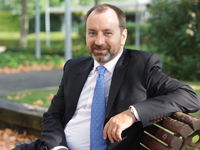 The Princesa de Asturias Chair and a Professor of Economic Geography at the London School of Economics. He is the Director of the Cañada Blanch Centre LSE and was Head of the Department of Geography and Environment between 2006 and 2009. He has been President of the Regional Science Association International (RSAI) (2015-2017) and served as its Vice-President in 2014. He was also Vice-President (2012-2013) and Secretary (2001-2005) of the European Regional Science Association. He is a part-time Professor of Innovation at the Centre for Innovation Research, University of Stavanger (Norway). He has been visiting professor at several higher education institutions, including the College of Europe (Belgium), the University of Cambridge (UK), the University of Hannover (Germany), the University of Split (Croatia), and the Autonomous University of Madrid (Spain).
The Princesa de Asturias Chair and a Professor of Economic Geography at the London School of Economics. He is the Director of the Cañada Blanch Centre LSE and was Head of the Department of Geography and Environment between 2006 and 2009. He has been President of the Regional Science Association International (RSAI) (2015-2017) and served as its Vice-President in 2014. He was also Vice-President (2012-2013) and Secretary (2001-2005) of the European Regional Science Association. He is a part-time Professor of Innovation at the Centre for Innovation Research, University of Stavanger (Norway). He has been visiting professor at several higher education institutions, including the College of Europe (Belgium), the University of Cambridge (UK), the University of Hannover (Germany), the University of Split (Croatia), and the Autonomous University of Madrid (Spain).
He has a long track record of research in regional growth and inequality, fiscal and political decentralization, institutions, discontent and populism, innovation, migration, and development policies and strategies. This research is widely cited in academic circles. In the 2021 Stanford/Elsevier list of the 2% most cited scientists (which identifies close to 200,000 researchers across all areas of science), he was among the 0.1% of researchers across all academic disciplines. He was ranked first worldwide in the field of urban and regional planning by scholarly citations in 2020. He also appears on Clarivate's Web of Science 2020 and 2021 lists of Highly Cited Researchers. His research is also influential in policy circles. In his areas of expertise, he has regularly acted as advisor to several Directorates of the European Commission, the World Bank, the Cities Alliance, the OECD, the International Labour Organization, UNCTAD, the United Nations Development Programme, the Food and Agriculture Organization, the European Investment Bank, the Inter-American Development Bank, the Development Bank of Latin America, the Asian Development Bank, or the African Union.
Among his honours is the 2018 ERSA Prize in Regional Science, considered to be among the highest awards in the field. He has been a holder of a European Research Council (ERC) Advanced Grant and of a prestigious Royal Society-Wolfson Research Merit Award. Other past academic prizes include a Leverhulme Trust Major Research Fellowship, a Philip Leverhulme Prize, and the Royal Geographical Society Gill Memorial Award. The latter two were awarded for his contribution to the understanding of regional disparities and development.
ANDRÉ TORRE
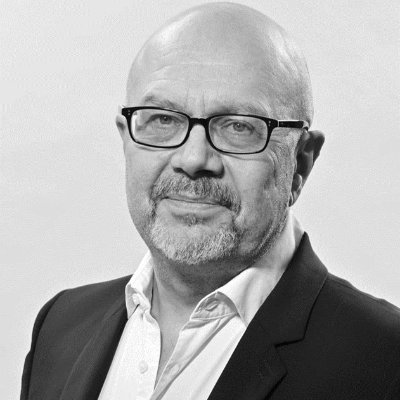 Professor of Economics, University Paris-Saclay, INRAE, AgroParistech. His research was for a long time at the cross roads of spatial and industrial economics. It has now become more multi-disciplinary and increasingly focused on questions related to territorial development processes and land use planning. He has published several articles and 25 books, mostly on issues related to spatial coordination between people or groups of people. His research currently focuses on the analysis of proximity relations and on their importance in processes of coordination between people. It centres on threee main areas: local interactions between innovative firms and, more particularly, the role played by geographical proximity in the transfer of knowledge; land use and neighbourhood conflicts; local dimensions of circular economy.
Professor of Economics, University Paris-Saclay, INRAE, AgroParistech. His research was for a long time at the cross roads of spatial and industrial economics. It has now become more multi-disciplinary and increasingly focused on questions related to territorial development processes and land use planning. He has published several articles and 25 books, mostly on issues related to spatial coordination between people or groups of people. His research currently focuses on the analysis of proximity relations and on their importance in processes of coordination between people. It centres on threee main areas: local interactions between innovative firms and, more particularly, the role played by geographical proximity in the transfer of knowledge; land use and neighbourhood conflicts; local dimensions of circular economy.
His involvement in research administration has led him to take on the roles of President of ERSA (European Regional Science Association), and of managing editor of the Revue d’Economie Régionale et Urbaine (Journal of Regional and Urban Economics). He is also past President of the ASRDLF (French Speaking Regional Science Association).
KARIMA KOURTIT
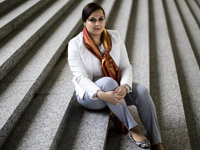 Currently at the Open University, Heerlen, The Netherlands. She was lab-owner at the Jheronimus Academy of Data Science (JADS) of the division Smart Cities & Data analytics (owned by the Eindhoven University of Technology and Tilburg University), ‘s-Hertogenbosch, The Netherlands. She has worked at the Center for the Future of Places (CFP) of the Department of Urban Planning and Environment, School of Architecture and Built Environment at KTH Royal Institute of Technology, Stockholm, and Adam Mickiewicz University, Poznan, Poland. She holds two Ph.D.s, in both economics and geography (with distinction), and has a profound interest in regional and urban topics. Her research interest focuses on the emerging ‘New Urban World’. Her main scientific research is in the field of creative industries, urban development, cultural heritage, digital technology, and strategic performance management. Lately, she has also been involved in the implementation of several national and international research projects and initiatives. Furthermore, she has been an editor of several books and guest editor for many international journals, and has published a wide array of scientific articles, papers, special issues of journals and edited volumes in the field of geography and the spatial sciences. She is also managing director of The Regional Science Academy. At present she is an affiliated professor on ‘Resilient, Sustainable & Smart Buildings and Cities’ at the new University of Technology in Ben Guerir (Morocco). In summary, her academic profile is characterized by a profound involvement in evidence-based urban and spatial research on smart city policy and data metrics, by a strong commitment to educational support to young researchers and by an active role in many international scientific and managerial activities.
Currently at the Open University, Heerlen, The Netherlands. She was lab-owner at the Jheronimus Academy of Data Science (JADS) of the division Smart Cities & Data analytics (owned by the Eindhoven University of Technology and Tilburg University), ‘s-Hertogenbosch, The Netherlands. She has worked at the Center for the Future of Places (CFP) of the Department of Urban Planning and Environment, School of Architecture and Built Environment at KTH Royal Institute of Technology, Stockholm, and Adam Mickiewicz University, Poznan, Poland. She holds two Ph.D.s, in both economics and geography (with distinction), and has a profound interest in regional and urban topics. Her research interest focuses on the emerging ‘New Urban World’. Her main scientific research is in the field of creative industries, urban development, cultural heritage, digital technology, and strategic performance management. Lately, she has also been involved in the implementation of several national and international research projects and initiatives. Furthermore, she has been an editor of several books and guest editor for many international journals, and has published a wide array of scientific articles, papers, special issues of journals and edited volumes in the field of geography and the spatial sciences. She is also managing director of The Regional Science Academy. At present she is an affiliated professor on ‘Resilient, Sustainable & Smart Buildings and Cities’ at the new University of Technology in Ben Guerir (Morocco). In summary, her academic profile is characterized by a profound involvement in evidence-based urban and spatial research on smart city policy and data metrics, by a strong commitment to educational support to young researchers and by an active role in many international scientific and managerial activities.
PETER NIJKAMP
 Emeritus Professor in regional and urban economics and in economic geography at the VU University, and associated with The Open University of the Netherlands (OU), Heerlen (The Netherlands), and the Alexandru Ioan Cuza University of Iasi, Iasi (Romania). He has published more than 2000 articles and books in the field of regional development, urban growth, transport and the environment. According to the RePec list he belongs to the top-25 of well-known economists world-wide. He is a fellow of the Royal Netherlands Academy of Sciences (KNAW). He has served as president of the governing board of the Netherlands Research Council (NWO). In 1996, he was awarded the most prestigious scientific prize in the Netherlands, the Spinoza award. Currently, he is vice-president of The Regional Science Academy (TRSA) and involved in many international research activities.
Emeritus Professor in regional and urban economics and in economic geography at the VU University, and associated with The Open University of the Netherlands (OU), Heerlen (The Netherlands), and the Alexandru Ioan Cuza University of Iasi, Iasi (Romania). He has published more than 2000 articles and books in the field of regional development, urban growth, transport and the environment. According to the RePec list he belongs to the top-25 of well-known economists world-wide. He is a fellow of the Royal Netherlands Academy of Sciences (KNAW). He has served as president of the governing board of the Netherlands Research Council (NWO). In 1996, he was awarded the most prestigious scientific prize in the Netherlands, the Spinoza award. Currently, he is vice-president of The Regional Science Academy (TRSA) and involved in many international research activities.
ALBERTO GIACOMETTI
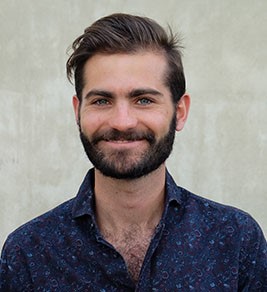 Research Fellow at Nordregio, a Nordic Centre for Regional Development and Planning. He is engaged in applied research projects in the field of regional development, the green transition and circular-economy. On behalf of the Nordic thematic group for green, innovative and resilient regions 2021-2024, and its predecessor programme (2017-2020), under the Nordic Council of Ministers‘ Committee of Civil Servants for Regional Affairs, Alberto has carried out empirical studies on regional resilience, the impacts of covid-related restrictions in border communities, and the actors’ perspective in green innovation. These studies have broadened the understanding of the different types of vulnerabilities Nordic regions face, and what role the institutional and social contexts play in coping with uncertainty. Moreover, Alberto is involved projects that that foster place-based and multi-actor approaches for regions economic path creation.
Research Fellow at Nordregio, a Nordic Centre for Regional Development and Planning. He is engaged in applied research projects in the field of regional development, the green transition and circular-economy. On behalf of the Nordic thematic group for green, innovative and resilient regions 2021-2024, and its predecessor programme (2017-2020), under the Nordic Council of Ministers‘ Committee of Civil Servants for Regional Affairs, Alberto has carried out empirical studies on regional resilience, the impacts of covid-related restrictions in border communities, and the actors’ perspective in green innovation. These studies have broadened the understanding of the different types of vulnerabilities Nordic regions face, and what role the institutional and social contexts play in coping with uncertainty. Moreover, Alberto is involved projects that that foster place-based and multi-actor approaches for regions economic path creation.
FRANCESCO MOLICA
 Francesco Molica is an expert in regional development and cohesion policy. He is currently Director for Regional Policy at the Conference of Peripheral Maritime Regions (CPMR), one of the biggest and most influential European associations of local and regional authorities. Previously, he worked for the European Commission (DG REGIO) and the EU programmes department of Calabria regional government (Italy). Francesco holds MA degrees in Politics and Philosophy from the University of Rome La Sapienza and in Communication from the University of Rome Tor Vergata. He has given lectures on cohesion policy at the University of Rome Tor Vergata, Roma Tre University, Cergy-Pontoise University. He is author of papers on regulatory aspects of cohesion policy as well as communication.
Francesco Molica is an expert in regional development and cohesion policy. He is currently Director for Regional Policy at the Conference of Peripheral Maritime Regions (CPMR), one of the biggest and most influential European associations of local and regional authorities. Previously, he worked for the European Commission (DG REGIO) and the EU programmes department of Calabria regional government (Italy). Francesco holds MA degrees in Politics and Philosophy from the University of Rome La Sapienza and in Communication from the University of Rome Tor Vergata. He has given lectures on cohesion policy at the University of Rome Tor Vergata, Roma Tre University, Cergy-Pontoise University. He is author of papers on regulatory aspects of cohesion policy as well as communication.
BOGDAN-CONSTANTIN IBANESCU
Bogdan–Constantin IBĂNESCU is a researcher at the Centre for European Studies of Alexandru Ioan Cuza University of Iasi, Romania. He holds a PhD diploma from Bordeaux Montaigne University, France (2012).
He has a cumulated 12 years of teaching experience at Alexandru Ioan Cuza University of Iasi and University of Corsica Pasquale Paoli (France) on courses related to Geography of Tourism and Human Geography. He received several research grants and postdoctoral stages at Abdelmalek Essaâdi University, Morocco (2013), Bordeaux 3 University (2017) and Paris-Saclay University (2019) and participated as researcher on spatial analysis for the projects TerrEvi, ENACTED, ROSEC, GEOCOVID, and ReGrowEU.
His main areas of interest are tourism development, spatial analysis, peripheral territories and regional resilience, having published several papers on peer-reviewed journals on those topics.
BLANKA ŠIMUNDIĆ
 Blanka Šimundić is an assistant professor at the Faculty of Economics, Business and Tourism, University of Split. Her main scientific research is in the field of tourism and economic growth, transportation and infrastructure, regional development and regional policies in Croatia and EU. She has published on perspectives of transport and tourism demand and supply, impacts of tourism on economic growth, health tourism infrastructure, regional resilience and smart specialisation. She is one of the national experts reporting to for the European Policies Research Centre on the regional policy and the assessment of instruments for the less developed areas of the Republic of Croatia. Currently she is involved as a researcher on Horizon 2020 SmartCulTour project (Smart Cultural Tourism as a Driver of Sustainable Development of European Regions).
Blanka Šimundić is an assistant professor at the Faculty of Economics, Business and Tourism, University of Split. Her main scientific research is in the field of tourism and economic growth, transportation and infrastructure, regional development and regional policies in Croatia and EU. She has published on perspectives of transport and tourism demand and supply, impacts of tourism on economic growth, health tourism infrastructure, regional resilience and smart specialisation. She is one of the national experts reporting to for the European Policies Research Centre on the regional policy and the assessment of instruments for the less developed areas of the Republic of Croatia. Currently she is involved as a researcher on Horizon 2020 SmartCulTour project (Smart Cultural Tourism as a Driver of Sustainable Development of European Regions).
VINKO MUŠTRA
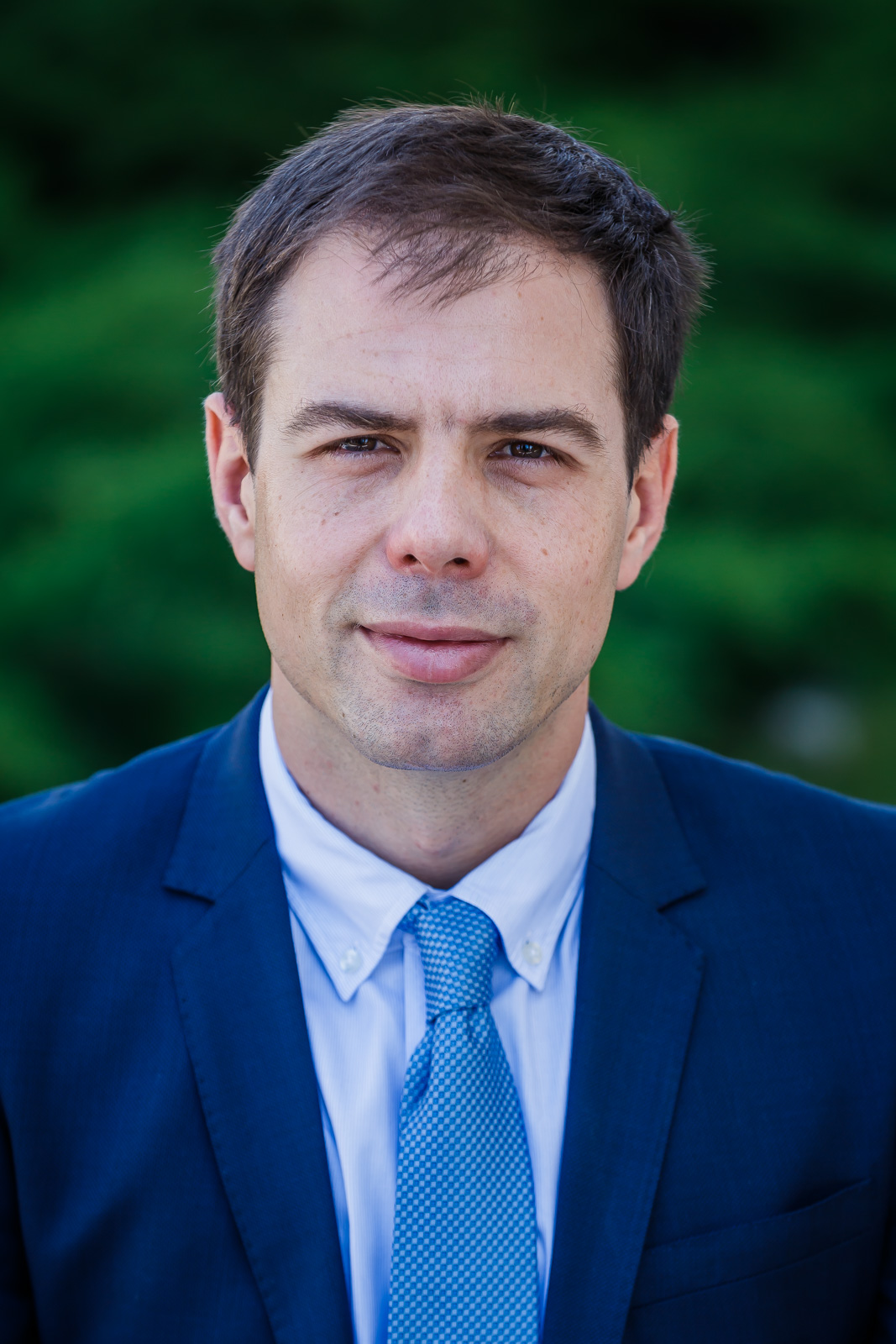 Vinko Muštra is the dean and associate professor at the Faculty of Economics, Business and Tourism, University of Split with a profound interest in regional and urban topics. His main research interest is in the field of smart specialization, urban development, agglomeration economies and EU regional policy. He has been involved in the implementation of national and international research projects and initiatives. Also he has published a wide array of scientific papers and articles in the field of spatial sciences. Furthermore, he is the Chairperson of the Organizing committee of the International Conference “Challenges of Europe”.
Vinko Muštra is the dean and associate professor at the Faculty of Economics, Business and Tourism, University of Split with a profound interest in regional and urban topics. His main research interest is in the field of smart specialization, urban development, agglomeration economies and EU regional policy. He has been involved in the implementation of national and international research projects and initiatives. Also he has published a wide array of scientific papers and articles in the field of spatial sciences. Furthermore, he is the Chairperson of the Organizing committee of the International Conference “Challenges of Europe”.
2. BEHAVIOURAL ECONOMICS
The FEBT Summer School Behavioural economics was focused on the development of analytical and critical skills relevant for developing a holistic perspective on behavioural economics. It was specialised on evaluating current trends and future prospects in the field of behavioural economics, developing a holistic perspective on evolution, cultural differences and challenges of cooperation, as well as developing basic framework for analysing behavioural mechanisms of economic decision making, while accounting for psychological and cultural aspects in this process. The experts in the field provided the scientific and practical knowledge of theories and methods used in behavioural economics.
Behavioural Economics covered the following topics:
- Behavioural economics (mental accounting, nudging, prospect theory, time discounting, self-control, self-signalling) - Dražen Prelec (MIT)
- New theories of decision under uncertainty and their applications to health - Han Bleichrodt (Erasmus University, Rotterdam)
- The relevance of norms and image concerns in economic behaviour - Zvonimir Bašić (Max Planck Institute, Bonn)
- Behavioural economics: current trends and future prospects - Silvia Golem (FEBT, Split)
- Psychology of judgment and decision-making - Nicolao Bonini (University of Trento)
- Evolutionary Dynamics of Reputations and Cooperation - Fernando P. Santos (University of Amsterdam)
- Cooperation and conflict between groups - Angelo Romano (Leiden University)
- Searching and meta-analyzing experimental research on cooperation using the Cooperation Databank - Giuliana Spadaro (Vrije Universiteit Amsterdam)
- Freedom of choice in cooperation, trust and ultimatum games - Ivan Romić (IIR, Tokyo)
- Theory and reality of human cooperation - Marko Jusup (IIR, Tokyo)
- Cultural differences and economic behaviour - Josipa Višić (FEBT, Split)
- Behavioural economics on financial markets: Individual risk-tolerance, systemic risk and aggregate market functionality - Ana Kundid Novokmet (FEBT, Split)
- Behavioural macroeconomics - Lena Malešević Perović (FEBT, Split)
Lecturers:
DRAŽEN PRELEC
 The Digital Equipment Corp. Leaders for Global Operations Professor of Management and a Professor of Management Science and Economics at the MIT Sloan School of Management.Prelec holds appointments in the Department of Economics and in the Department of Brain and Cognitive Sciences. His research deals with the psychology and neuroscience of decision-making, including behavioral economics and neuroeconomics, risky choice, time discounting, self-control, and consumer behavior. He works on both the development of normative decision theory and the exploration of the empirical failures of that theory, using behavioral and fMRI methods. A current project on “self-signaling” tries to understand the strange power of non-causal motivation—when individuals favor actions that are diagnostic of good outcomes, even though these actions have little or no causal force. Diagnostic motivation is real, and is probably essential for human self-control. Its cognitive and neural mechanisms are not well understood, however. A second “Bayesian truth serum” project deals with scoring systems for evaluating individual and collective judgment in knowledge domains where no external truth criterion is available. Examples would be long-range forecasts, political or historical inferences, and artistic or legal interpretations. Prelec is developing scoring systems that reward honest judgments and that can identify truth even when majority opinion is wrong. He was a Junior Fellow in the Harvard Society of Fellows, and has received a number of distinguished research awards, including the John Simon Guggenheim Fellowship. Prelec holds an AB in applied mathematics from Harvard College and a PhD in experimental psychology from Harvard University.
The Digital Equipment Corp. Leaders for Global Operations Professor of Management and a Professor of Management Science and Economics at the MIT Sloan School of Management.Prelec holds appointments in the Department of Economics and in the Department of Brain and Cognitive Sciences. His research deals with the psychology and neuroscience of decision-making, including behavioral economics and neuroeconomics, risky choice, time discounting, self-control, and consumer behavior. He works on both the development of normative decision theory and the exploration of the empirical failures of that theory, using behavioral and fMRI methods. A current project on “self-signaling” tries to understand the strange power of non-causal motivation—when individuals favor actions that are diagnostic of good outcomes, even though these actions have little or no causal force. Diagnostic motivation is real, and is probably essential for human self-control. Its cognitive and neural mechanisms are not well understood, however. A second “Bayesian truth serum” project deals with scoring systems for evaluating individual and collective judgment in knowledge domains where no external truth criterion is available. Examples would be long-range forecasts, political or historical inferences, and artistic or legal interpretations. Prelec is developing scoring systems that reward honest judgments and that can identify truth even when majority opinion is wrong. He was a Junior Fellow in the Harvard Society of Fellows, and has received a number of distinguished research awards, including the John Simon Guggenheim Fellowship. Prelec holds an AB in applied mathematics from Harvard College and a PhD in experimental psychology from Harvard University.
HAN BLEICHRODT
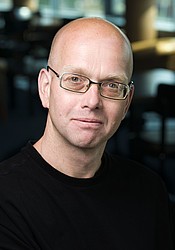 Professor of behavioural economics at the Erasmus School of Economics. He completed his Ph.D. in 1996 at Erasmus University Rotterdam. Professor Bleichrodt's research activities focus on decisions under uncertainty and over time. He has a particular interest in those decisions involving health. He is an author and co-author of numerous publications and research work for which he won numerous awards such as Decision Analysis 2003 publications award (best paper published in decision analysis in 2001) and Decision Analysis 2009 publications awards (best paper published in decision analysis in 2007). Between 2014 and 2018, he was a department editor Decision Analysis of Management Science. He is a winner of Top Senior Researcher Erasmus School of Economics (for years 2007, 2008, 2009, 2010, 2011), ERIM High Performance Member (for period from 2010 to 2018); Distinguished Service Award Management Science (for period from 2009 to 2013) and Umbra Erasmi medal Erasmus University in 2015.
Professor of behavioural economics at the Erasmus School of Economics. He completed his Ph.D. in 1996 at Erasmus University Rotterdam. Professor Bleichrodt's research activities focus on decisions under uncertainty and over time. He has a particular interest in those decisions involving health. He is an author and co-author of numerous publications and research work for which he won numerous awards such as Decision Analysis 2003 publications award (best paper published in decision analysis in 2001) and Decision Analysis 2009 publications awards (best paper published in decision analysis in 2007). Between 2014 and 2018, he was a department editor Decision Analysis of Management Science. He is a winner of Top Senior Researcher Erasmus School of Economics (for years 2007, 2008, 2009, 2010, 2011), ERIM High Performance Member (for period from 2010 to 2018); Distinguished Service Award Management Science (for period from 2009 to 2013) and Umbra Erasmi medal Erasmus University in 2015.
ZVONIMIR BAŠIĆ
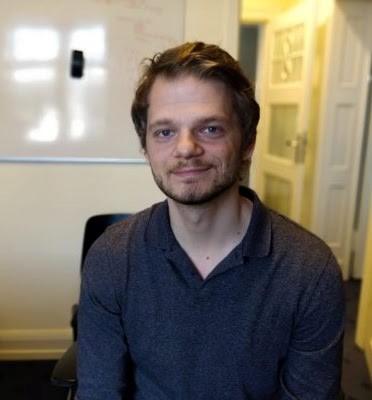 Senior Research Fellow and a member of the Experimental Economics Group at the Max Planck Institute for Research on Collective Goods in Bonn. The institute is a part of Germany's leading research institution - The Max Planck Society. Zvonimir is also a member of the Center for Social and Economic Behavior at the University of Cologne (C-SEB). He obtained a PhD in Economics at the Bonn Graduate School of Economics (BGSE) in December, 2018. Furthermore, he finished two master programs — one at the University of Zagreb with focus on Economics and Finance in September, 2012, and another at the University of Bonn with focus on Economics in September, 2013. He also obtained a bachelor degree from the University of Zagreb with focus on Economics and Finance in September, 2010. His academic work foremost lies within the field of Behavioral and Experimental Economics where he particularly focuses on understanding i) how economic preferences as well as prosocial and cooperative behavior develops and can be shaped across childhood and adolescence, and ii) how self and social image concerns as well as behavioral norms affect economic decision making. In his work he mostly relies on experimental tools, either by running experiments in the lab, or by setting up labs in the field.
Senior Research Fellow and a member of the Experimental Economics Group at the Max Planck Institute for Research on Collective Goods in Bonn. The institute is a part of Germany's leading research institution - The Max Planck Society. Zvonimir is also a member of the Center for Social and Economic Behavior at the University of Cologne (C-SEB). He obtained a PhD in Economics at the Bonn Graduate School of Economics (BGSE) in December, 2018. Furthermore, he finished two master programs — one at the University of Zagreb with focus on Economics and Finance in September, 2012, and another at the University of Bonn with focus on Economics in September, 2013. He also obtained a bachelor degree from the University of Zagreb with focus on Economics and Finance in September, 2010. His academic work foremost lies within the field of Behavioral and Experimental Economics where he particularly focuses on understanding i) how economic preferences as well as prosocial and cooperative behavior develops and can be shaped across childhood and adolescence, and ii) how self and social image concerns as well as behavioral norms affect economic decision making. In his work he mostly relies on experimental tools, either by running experiments in the lab, or by setting up labs in the field.
SILVIA GOLEM
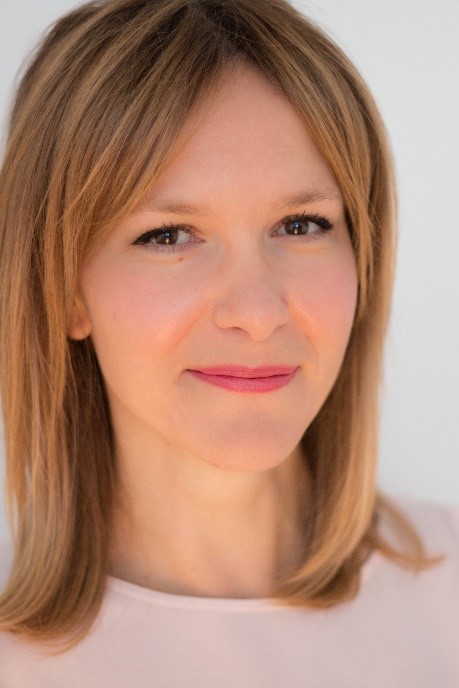 Associate professor at Faculty of Economics, Business and Tourism Split, University of Split and CERGE-EI Teaching Fellow. She obtained her Phd diploma in Economics at Staffordshire University, Stoke-on-Trent (UK). At the present time, she teaches different courses: Methodology of Economic Research, Urban Economics, Spatial Economics and Macroeconomic Planning. She actively participates in scientific projects mainly related to methodology of economic research, urban and public economics.
Associate professor at Faculty of Economics, Business and Tourism Split, University of Split and CERGE-EI Teaching Fellow. She obtained her Phd diploma in Economics at Staffordshire University, Stoke-on-Trent (UK). At the present time, she teaches different courses: Methodology of Economic Research, Urban Economics, Spatial Economics and Macroeconomic Planning. She actively participates in scientific projects mainly related to methodology of economic research, urban and public economics.
NICOLAO BONINI
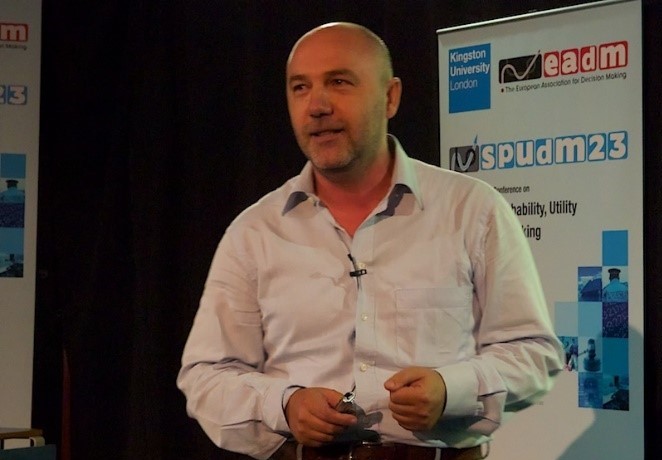 Professor at the Department of Economics and Management and Head of the Consumer Neuroscience Lab at the University of Trento (Field of research: Cognitive psychology). He is also a Former president of the European Association of Decision Making (EADM). He obtained his PhD in experimental psychology at University of Trieste, in 1992. He is an author of numerous studies in the area of decision-making. He won the Prize for the best Italian PhD Thesis, May 1993.
Professor at the Department of Economics and Management and Head of the Consumer Neuroscience Lab at the University of Trento (Field of research: Cognitive psychology). He is also a Former president of the European Association of Decision Making (EADM). He obtained his PhD in experimental psychology at University of Trieste, in 1992. He is an author of numerous studies in the area of decision-making. He won the Prize for the best Italian PhD Thesis, May 1993.
IVAN ROMIĆ
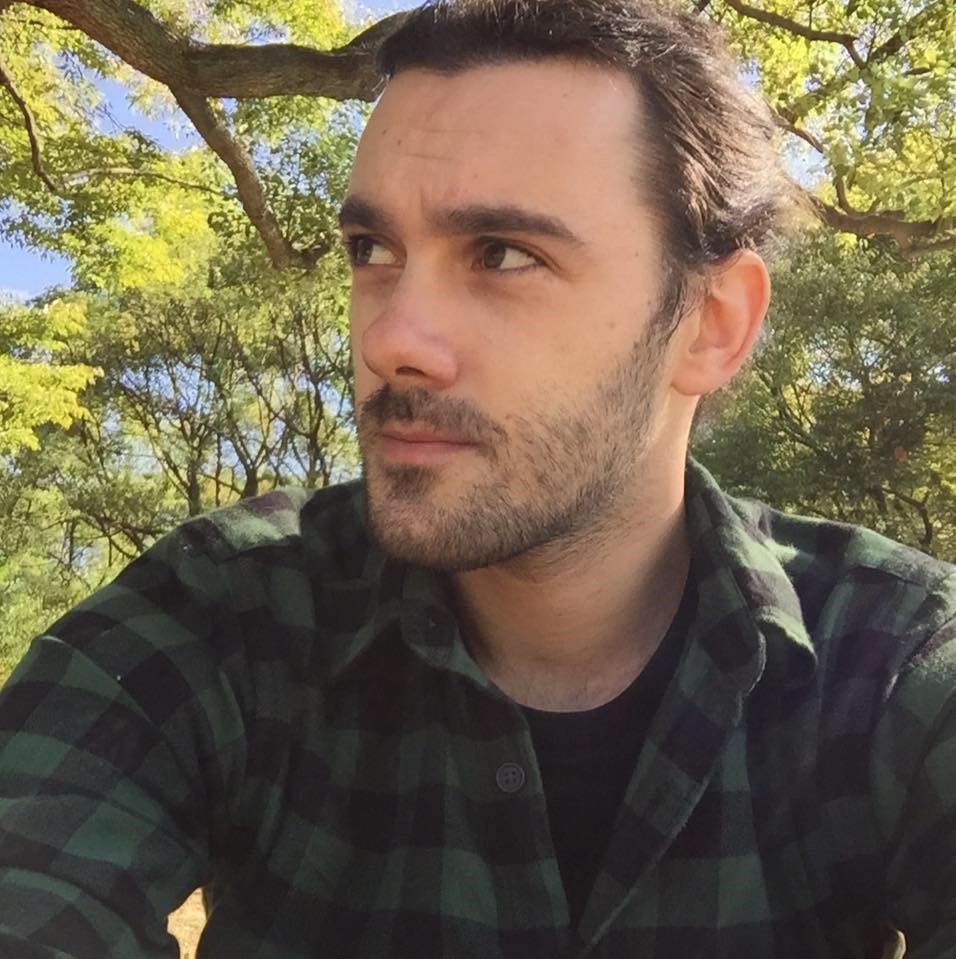 Postdoctoral Research Fellow at the Institute of Innovative Research, Tokyo Institute of Technology, Japan. Previously, he was a Postdoctoral Research Fellow at School of Artificial Intelligence, Optics, and Electronics (iOPEN), Northwestern Polytechnical University, China and a visiting researcher at Statistics and Mathematics College, Yunnan University of Finance and Economics, China. He obtained a PhD in Computational Economics in June, 2019 from Graduate School of Economics at Osaka City University and master's degree focused on international economics and European integration from Graduate School of Economics at University of Split, Croatia in February, 2013. In his research he uses methods from computational and evolutionary social sciences to tackle issues such as evolution and maintenance of cooperation, trust, and fairness in society and nature.
Postdoctoral Research Fellow at the Institute of Innovative Research, Tokyo Institute of Technology, Japan. Previously, he was a Postdoctoral Research Fellow at School of Artificial Intelligence, Optics, and Electronics (iOPEN), Northwestern Polytechnical University, China and a visiting researcher at Statistics and Mathematics College, Yunnan University of Finance and Economics, China. He obtained a PhD in Computational Economics in June, 2019 from Graduate School of Economics at Osaka City University and master's degree focused on international economics and European integration from Graduate School of Economics at University of Split, Croatia in February, 2013. In his research he uses methods from computational and evolutionary social sciences to tackle issues such as evolution and maintenance of cooperation, trust, and fairness in society and nature.
MARKO JUSUP
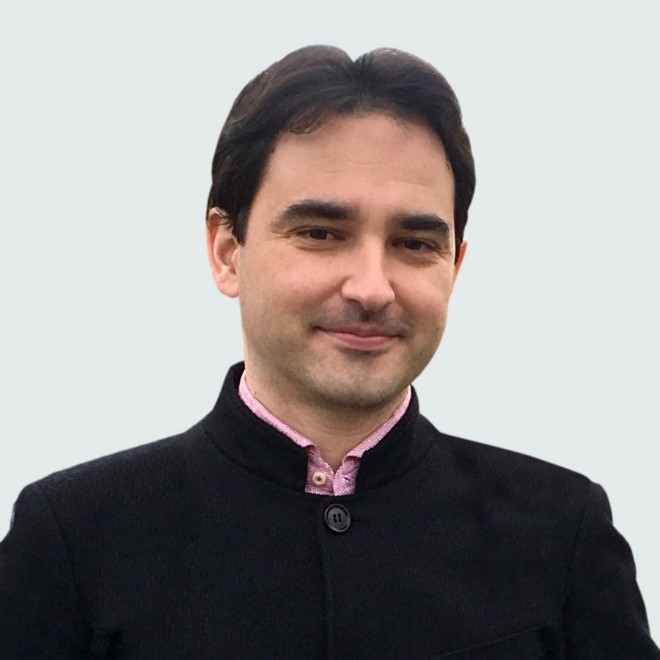 Assistant professor at the Institute of Innovative Research, Tokyo Institute of Technology, Japan. Previously, he held a similar position for two years at the Center of Mathematics for Social Creativity, Hokkaido University. He was also a Japan Society for the Promotion of Science (JSPS) postdoctoral fellow at the Faculty of Sciences, Kyushu University. Assistant professor Jusup got his (i) PhD in Environmental Risk Management in March 2012 from Yokohama National University, (ii) an MBA degree in Finance and Banking from Zagreb School of Economics and Management (ZSEM) in July 2008, as well as (iii) a BS degree in Physics and Mathematics from the University of Rijeka in November 2003. His research career started in February 2004 at Rudjer Boskovic Institute (RBI), the largest Croatian national research institution. Over time, he contributed to multiple international scientific projects, including large Pan-European collaborations within the Framework Programmes for Research and Technological Development. He actively supports the creation of Free Content (e.g. Open Access, Open-source Software, etc.) and other actions improving human liberties.
Assistant professor at the Institute of Innovative Research, Tokyo Institute of Technology, Japan. Previously, he held a similar position for two years at the Center of Mathematics for Social Creativity, Hokkaido University. He was also a Japan Society for the Promotion of Science (JSPS) postdoctoral fellow at the Faculty of Sciences, Kyushu University. Assistant professor Jusup got his (i) PhD in Environmental Risk Management in March 2012 from Yokohama National University, (ii) an MBA degree in Finance and Banking from Zagreb School of Economics and Management (ZSEM) in July 2008, as well as (iii) a BS degree in Physics and Mathematics from the University of Rijeka in November 2003. His research career started in February 2004 at Rudjer Boskovic Institute (RBI), the largest Croatian national research institution. Over time, he contributed to multiple international scientific projects, including large Pan-European collaborations within the Framework Programmes for Research and Technological Development. He actively supports the creation of Free Content (e.g. Open Access, Open-source Software, etc.) and other actions improving human liberties.
FERNANDO P. SANTOS
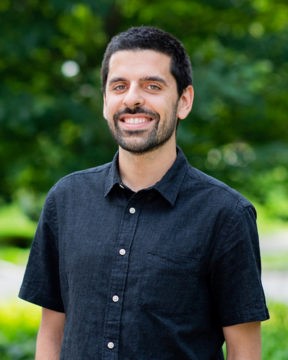 Assistant professor at the Informatics Institute of the University of Amsterdam (Field of research; Multiagent systems, Game Theory, Complex networks). He completed his MSc in Computer Science (2013) and his PhD (2018) at the University of Lisbon, Instituto Superior Técnico (IST, Lisboa). Between 2018 and 2021, he was a James S. McDonnell Postdoctoral Fellow at Princeton University. He won the Victor Lesser Distinguished Dissertation Award by the International Foundation for Autonomous Agents and Multiagent Systems (2019), the Best PhD Thesis in Artificial Intelligence (2017-2018) by the Portuguese Association for Artificial Intelligence and the INESC-ID award for Best PhD student (2017). He also worked as a research assistant at GAIPS (INESC-ID) and as a member of the ATP-Group. He served as teaching assistant at the Department of Computer Science and Engineering of IST and was a visiting student at Princeton University, TU Delft (The Netherlands) and the Université Libre de Bruxelles (Belgium). His research work lies at the interface of AI and complex systems.
Assistant professor at the Informatics Institute of the University of Amsterdam (Field of research; Multiagent systems, Game Theory, Complex networks). He completed his MSc in Computer Science (2013) and his PhD (2018) at the University of Lisbon, Instituto Superior Técnico (IST, Lisboa). Between 2018 and 2021, he was a James S. McDonnell Postdoctoral Fellow at Princeton University. He won the Victor Lesser Distinguished Dissertation Award by the International Foundation for Autonomous Agents and Multiagent Systems (2019), the Best PhD Thesis in Artificial Intelligence (2017-2018) by the Portuguese Association for Artificial Intelligence and the INESC-ID award for Best PhD student (2017). He also worked as a research assistant at GAIPS (INESC-ID) and as a member of the ATP-Group. He served as teaching assistant at the Department of Computer Science and Engineering of IST and was a visiting student at Princeton University, TU Delft (The Netherlands) and the Université Libre de Bruxelles (Belgium). His research work lies at the interface of AI and complex systems.
JOSIPA VIŠIĆ
 Joined the Faculty of Economics, Business and Tourism, University of Split team in 2006. She is an associate professor and has been Deputy Head of the Department for Economics at FEBT. She teaches several courses on undergraduate, graduate and postgraduate levels related to microeconomics and corporate restructuring. Further, she has been involved in the Professional practice – Service Learning course as a mentor. Over the years, Josipa has been enrolled in various scientific and professional projects. She is a member of the Croatian Operational Research Society (CRORS) and a member of the organising committee of The International Conference on Operational Research (KOI). Her research interests have previously been related to microeconomic aspects of mergers and acquisitions. However, recently, her research has been more directed toward the economic aspects of robotisation and the ageing of the population. In other words, she plans to focus more on the microeconomic perspective of these two inevitable economic and social changes.
Joined the Faculty of Economics, Business and Tourism, University of Split team in 2006. She is an associate professor and has been Deputy Head of the Department for Economics at FEBT. She teaches several courses on undergraduate, graduate and postgraduate levels related to microeconomics and corporate restructuring. Further, she has been involved in the Professional practice – Service Learning course as a mentor. Over the years, Josipa has been enrolled in various scientific and professional projects. She is a member of the Croatian Operational Research Society (CRORS) and a member of the organising committee of The International Conference on Operational Research (KOI). Her research interests have previously been related to microeconomic aspects of mergers and acquisitions. However, recently, her research has been more directed toward the economic aspects of robotisation and the ageing of the population. In other words, she plans to focus more on the microeconomic perspective of these two inevitable economic and social changes.
ANGELO ROMANO

Postdoctoral researcher at the Leiden University (Field of research; Experimental economics – social psychology). He is interested in understanding the processes involved in human cooperative decision-making. He applies theory and methods from economics, social psychology and evolutionary biology to investigate: (a) the relation between ingroup favoritism and reputation-based cooperation, (b) the predictive power of different psychological mechanisms (e.g. reciprocity, conformity) in promoting cooperation, and (c) cross-cultural differences in intergroup discrimination in trust and cooperation. He completed Master's degree in mind sciences summa cum laude from the University of Turin (2012-2014) and Double Ph.D. at Vrije Universiteit Amsterdam, the Netherlands and University of Turin, Italy in January, 2018. He is a winner of Otto Hahn Medal for the year 2018 by the Max Planck Society for his work on human cooperation and parochial altruism across societies; best dissertation in social psychology award in Italy (for the year 2017-2018); ASPO award for best dissertation in the Netherlands; Faculty Junior Career Award, Department of Experimental and Applied Psychology, Vrije Universiteit Amsterdam and Best Presentation Award, 17th International Conference on Social Dilemmas (2017).
GIULIANA SPADARO
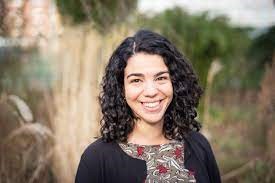 Postdoctoral researcher at the Vrije Universiteit Amsterdam. She is interested in understanding how trust and cooperation vary across the globe, and how institutions can account for this variation. Her work is at the intersection of cultural psychology, social psychology, and behavioral economics and she applies different methods such as meta-analyses, experiments, and analyses of large-scale surveys. She completed a Master's degree in Mind Science (University of Torino, IT), and a PhD in Psychological, Anthropological, and Education Science (University of Torino, IT). She is co-director of the Cooperation Databank, an open access, machine-readable, dataset of empirical studies on human cooperation. For this work, she is among the recipients of the Open Science Award (2021) - Awarded by Faculty of Behavioral and Movement Sciences (Vrije Universiteit Amsterdam, NL).
Postdoctoral researcher at the Vrije Universiteit Amsterdam. She is interested in understanding how trust and cooperation vary across the globe, and how institutions can account for this variation. Her work is at the intersection of cultural psychology, social psychology, and behavioral economics and she applies different methods such as meta-analyses, experiments, and analyses of large-scale surveys. She completed a Master's degree in Mind Science (University of Torino, IT), and a PhD in Psychological, Anthropological, and Education Science (University of Torino, IT). She is co-director of the Cooperation Databank, an open access, machine-readable, dataset of empirical studies on human cooperation. For this work, she is among the recipients of the Open Science Award (2021) - Awarded by Faculty of Behavioral and Movement Sciences (Vrije Universiteit Amsterdam, NL).
ANA KUNDID NOVOKMET
 Associate professor at Department of Finance, Faculty of Economics, Business and Tourism, University of Split. She has been lecturing various financial courses for almost 15 years (Bank management, Theory of financial intermediation, Banking, Financial markets, Investment banking). She is also CERGE-EI Foundation Local Instructor for Financial markets. Her research interests are within banking regulation, capital requirements regulation, bank financial management, alternative banking business models, financial innovations, and behavioral finance. She is a member of Croatian Operational Research Society and Croatian Economic Association. Her current research work is dedicated to bank managers’ risk-taking activities, individual risk tolerance and systemic risk. She is also engaged in the SEA-EU project as an expert in the area of sustainable development.
Associate professor at Department of Finance, Faculty of Economics, Business and Tourism, University of Split. She has been lecturing various financial courses for almost 15 years (Bank management, Theory of financial intermediation, Banking, Financial markets, Investment banking). She is also CERGE-EI Foundation Local Instructor for Financial markets. Her research interests are within banking regulation, capital requirements regulation, bank financial management, alternative banking business models, financial innovations, and behavioral finance. She is a member of Croatian Operational Research Society and Croatian Economic Association. Her current research work is dedicated to bank managers’ risk-taking activities, individual risk tolerance and systemic risk. She is also engaged in the SEA-EU project as an expert in the area of sustainable development.
LENA MALEŠEVIĆ PEROVIĆ
 Full professor at Faculty of Economics, Business and Tourism Split, University of Split and Head of doctoral studies in Economics at the same Faculty. She is also CERGE-EI (Prague, Czech Republic) Teaching Fellow. She obtained her MA in 2002, and Phd in 2007 at Staffordshire University, Stoke-on-Trent (UK). She teaches Macroeconomics I, II and III and Macroeconomic Planning at the undergraduate and graduate level. She actively participates in domestic and international scientific projects. Her research interests include fiscal and monetary policy, issues of growth, inflation, public debt, government expenditures and sustainable development. Her current research work is dedicated to behavioral and experimental economics.
Full professor at Faculty of Economics, Business and Tourism Split, University of Split and Head of doctoral studies in Economics at the same Faculty. She is also CERGE-EI (Prague, Czech Republic) Teaching Fellow. She obtained her MA in 2002, and Phd in 2007 at Staffordshire University, Stoke-on-Trent (UK). She teaches Macroeconomics I, II and III and Macroeconomic Planning at the undergraduate and graduate level. She actively participates in domestic and international scientific projects. Her research interests include fiscal and monetary policy, issues of growth, inflation, public debt, government expenditures and sustainable development. Her current research work is dedicated to behavioral and experimental economics.
3. MICROECONOMETRICS IN STATA
The FEBT Summer school Microeconometrics in STATA was specialized in the use of statistical methods and research designs essential for high-quality empirical economic work. The experts in the field provided the scientific and practical knowledge of methods used for testing causal relationships in economic and business processes. This course provided up-to-date coverage of different microeconometric methods and models. Apart from a review of relevant theory, the focus of the course was on the practical application of microeconometric techniques appropriate for different data and contexts.
Microeconometrics in STATA covered following themes:
- Fundamentals of causal inference - Jurica Zrnc (HNB)
- Parallel worlds and discontinuities - Ivan Žilić (EIZG)
- Dynamic Panel Data Models - Blanka Škrabić Perić (FEBT)
Lecturers:
IVAN ŽILIĆ
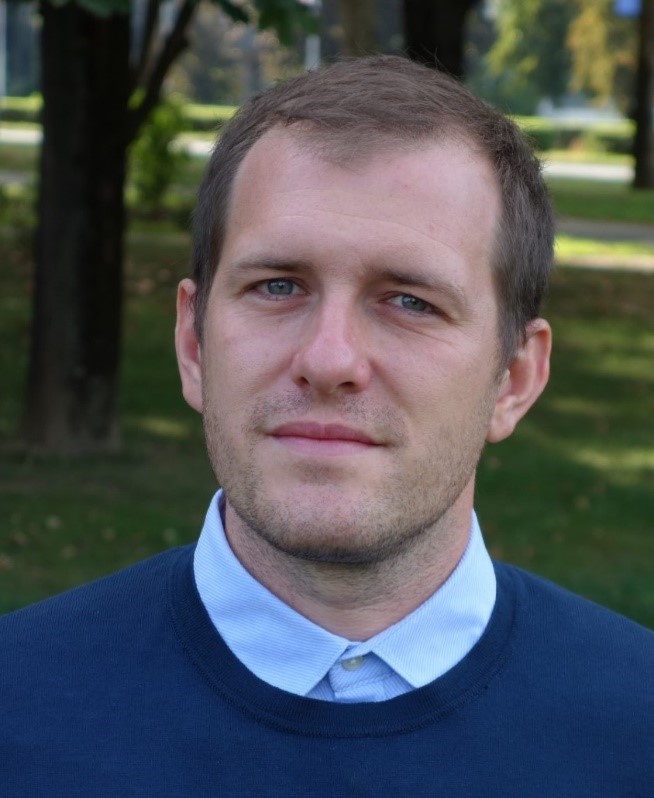 Ivan Žilić is an economist, econometrician, and data enthusiast working as a Research Associate at the Institute of Economics, Zagreb, and Research Associate at the South East Europe Research Unit at the London School of Economics and Political Science. He obtained his undergraduate degree in Economics at the University of Zagreb, master's degree in Economic Analysis at the Universidad Carlos III de Madrid in Spain, and Ph.D. in Economics at the Johannes Kepler University in Linz, Austria. He also worked at the European Institute at the LSE. His research focuses on using microeconometric techniques to tackle important policy questions, usually in the realm of labor, education, and development economics. His research has been published in Journal of Housing Economics, LABOUR, IZA Journal of Labor Policy, European Journal of Political Economy, Economics of Education Review, and Journal of the Royal Statistical Society: Series A. In addition to his research, Ivan has also participated in numerous consultancy projects and has taught short and semester-long courses on econometrics and data science.
Ivan Žilić is an economist, econometrician, and data enthusiast working as a Research Associate at the Institute of Economics, Zagreb, and Research Associate at the South East Europe Research Unit at the London School of Economics and Political Science. He obtained his undergraduate degree in Economics at the University of Zagreb, master's degree in Economic Analysis at the Universidad Carlos III de Madrid in Spain, and Ph.D. in Economics at the Johannes Kepler University in Linz, Austria. He also worked at the European Institute at the LSE. His research focuses on using microeconometric techniques to tackle important policy questions, usually in the realm of labor, education, and development economics. His research has been published in Journal of Housing Economics, LABOUR, IZA Journal of Labor Policy, European Journal of Political Economy, Economics of Education Review, and Journal of the Royal Statistical Society: Series A. In addition to his research, Ivan has also participated in numerous consultancy projects and has taught short and semester-long courses on econometrics and data science.
JURICA ZRNC
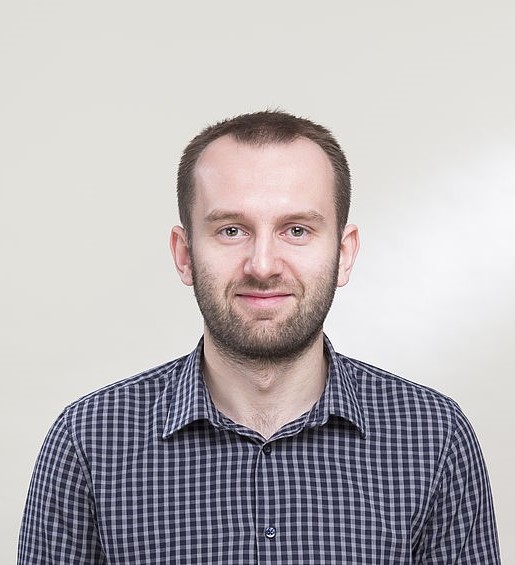 Jurica Zrnc is a research economist at the Croatian National Bank. He uses techniques from microeconometrics to understand financial and macroeconomic phenomena. Jurica received a Master in Economics and Finance from Barcelona Graduate School of Economics and a PhD in Economics at University of Vienna (expected in first half of 2022). He was a visiting researcher at the University of Michigan and Universitat Pompeu Fabra in Barcelona. Jurica received numerous research grants and scholarships. For example, he was employed for four years at the University of Vienna through the Uni:docs Fellowship Programme for outstanding PhD students. At the Croatian Central Bank, he participated in GDP forecasts and in European Central Bank research networks. In 2014, he received the prof. dr. Marijan Hanzekovic foundation award for his research. Currently, he works on evaluating the economic effects of novel interfirm payment systems that could be applied across the world. A second strand of his research focuses on political connections, public procurement and market power.
Jurica Zrnc is a research economist at the Croatian National Bank. He uses techniques from microeconometrics to understand financial and macroeconomic phenomena. Jurica received a Master in Economics and Finance from Barcelona Graduate School of Economics and a PhD in Economics at University of Vienna (expected in first half of 2022). He was a visiting researcher at the University of Michigan and Universitat Pompeu Fabra in Barcelona. Jurica received numerous research grants and scholarships. For example, he was employed for four years at the University of Vienna through the Uni:docs Fellowship Programme for outstanding PhD students. At the Croatian Central Bank, he participated in GDP forecasts and in European Central Bank research networks. In 2014, he received the prof. dr. Marijan Hanzekovic foundation award for his research. Currently, he works on evaluating the economic effects of novel interfirm payment systems that could be applied across the world. A second strand of his research focuses on political connections, public procurement and market power.
BLANKA ŠKRABIĆ PERIĆ
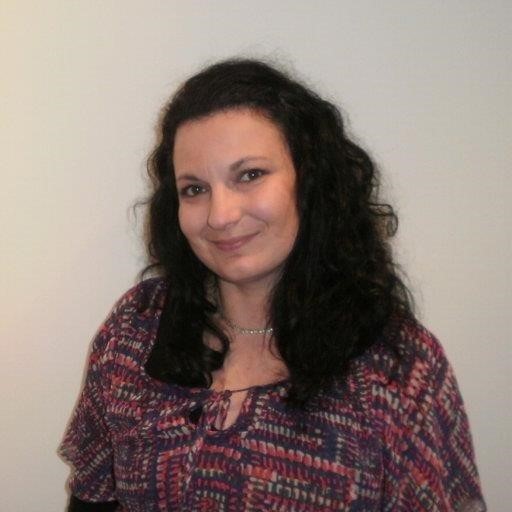 Blanka Škrabić Perić is an associate professor at the Faculty of Economic, Business and Tourism in Split. She is co- editor of journal Croatian Operational Research Review. Currently, she is a member of team two national research projects of the Croatian Science Foundation and one international scientific project Horizon 2020 SmartCultur. Her fields of interest are properties dynamic panel data estimators and tests of heterogeneous Granger causality. She published 11 articles in the WOS indexed journals she perform dynamic panel data estimators in the different fields of economics.
Blanka Škrabić Perić is an associate professor at the Faculty of Economic, Business and Tourism in Split. She is co- editor of journal Croatian Operational Research Review. Currently, she is a member of team two national research projects of the Croatian Science Foundation and one international scientific project Horizon 2020 SmartCultur. Her fields of interest are properties dynamic panel data estimators and tests of heterogeneous Granger causality. She published 11 articles in the WOS indexed journals she perform dynamic panel data estimators in the different fields of economics.
4. ENTREPRENEURSHIP, INNOVATION AND CREATIVITY
The FEBT Summer school Entrepreneurship, Innovation and Creativity was designed for students who wanted to develop their creative potential to innovate and who were intrigued with the world of entrepreneurship. The main objective of the programme was to develop creative thinking and foster greater initiative and to understand the key stages of the entrepreneurial process. The experts with international experience in start-up mentoring coached students in teams through the process of idea generation, execution and the pitch.
Entrepreneurship, Innovation and Creativity covered following topics:
- Entrepreneurship, Creativity and Innovation - Senia Čaušević and Vlatka Škokić
- Startup world - Arjan Goudsblom and Gergő Gulyás
- From idea to business - Arjan Goudsblom, Gergő Gulyás, Vlatka Škokić, Marina Lovrinčević and Ljiljana Najev Čačija
- Business model and pitch - Arjan Goudsblom, Gergő Gulyás, Vlatka Škokić, Marina Lovrinčević and Ljiljana Najev Čačija
Lecturers:
SENIJA ČAUŠEVIĆ
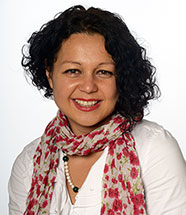 Associate professor in Marketing and Cultural Studies at the School of Oriental and African Studies, SOAS, London, UK. She is an interdisciplinary scholar specialising in cultural theory, critical marketing and the creative industries. Her research interests include discourses of management, the commodification and appropriation of cultural heritage, and the role of cultural heritage and the creative industries in the normalisation of social relationships in times of post-conflict and post-crisis. Besides cultural heritage, her recent studies explore alternative economies, their sustainability, potential, longevity, and community ethos. She is also interested in digital disruption, alternative currencies, digital marketing and the challenges of social media and fake news. Senija's research is published in the leading management and social science journals including Annals of Tourism Research, Tourism Management and Journal of Marketing Management. Senija is a Co-Chair of the Centre for Ottoman Studies at SOAS and Director of the Centre for Financial and Management Studies (online distance learning).
Associate professor in Marketing and Cultural Studies at the School of Oriental and African Studies, SOAS, London, UK. She is an interdisciplinary scholar specialising in cultural theory, critical marketing and the creative industries. Her research interests include discourses of management, the commodification and appropriation of cultural heritage, and the role of cultural heritage and the creative industries in the normalisation of social relationships in times of post-conflict and post-crisis. Besides cultural heritage, her recent studies explore alternative economies, their sustainability, potential, longevity, and community ethos. She is also interested in digital disruption, alternative currencies, digital marketing and the challenges of social media and fake news. Senija's research is published in the leading management and social science journals including Annals of Tourism Research, Tourism Management and Journal of Marketing Management. Senija is a Co-Chair of the Centre for Ottoman Studies at SOAS and Director of the Centre for Financial and Management Studies (online distance learning).
VLATKA ŠKOKIĆ
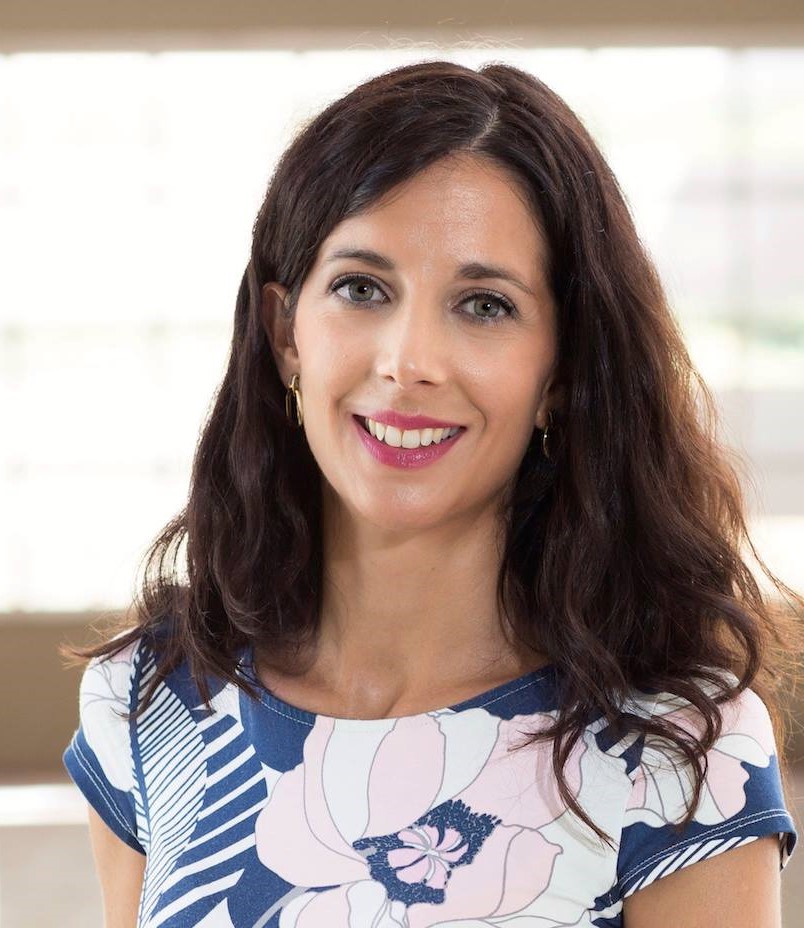 Associate professor of Entrepreneurship at Faculty of Economics, Business and Tourism, Split and a Visiting research fellow at University of Surrey, School of Hospitality and Tourism Management, UK. Prior joining the University of Split, she spent six years as an assistant professor at the University of Surrey. Vlatka holds a PhD from the University of Strathclyde, Scotland. Her research is focused on entrepreneurship, innovation and networks. Vlatka's research is published in the leading management and social science journals including Annals of Tourism Research and European Management Journal. Vlatka is experienced at teaching a range of subjects including entrepreneurship, family business and research methods (qualitative) at postgraduate and doctoral level. She participates in a number of scientific projects related to entrepreneurship, including the European Union’s Horizon 2020 research and innovation programme under the Marie Skłodowska-Curie grant. She is a Fellow of the Higher Education Academy (HEA).
Associate professor of Entrepreneurship at Faculty of Economics, Business and Tourism, Split and a Visiting research fellow at University of Surrey, School of Hospitality and Tourism Management, UK. Prior joining the University of Split, she spent six years as an assistant professor at the University of Surrey. Vlatka holds a PhD from the University of Strathclyde, Scotland. Her research is focused on entrepreneurship, innovation and networks. Vlatka's research is published in the leading management and social science journals including Annals of Tourism Research and European Management Journal. Vlatka is experienced at teaching a range of subjects including entrepreneurship, family business and research methods (qualitative) at postgraduate and doctoral level. She participates in a number of scientific projects related to entrepreneurship, including the European Union’s Horizon 2020 research and innovation programme under the Marie Skłodowska-Curie grant. She is a Fellow of the Higher Education Academy (HEA).
ARJAN GOUDSBLOM
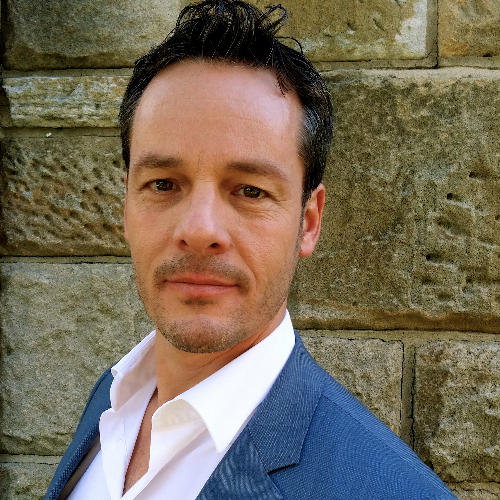 Co-Founder and Director at Preneurz.Amsterdam, Senior Connector Technology at Techleapnl, Amsterdam, the Neatherlands. Arjan is passionate about the start-up ecosystem, guiding entrepreneurs through the process of determining the desirability, feasibility and viability of their business plans and strategies, towards a successful launch or scaling of their start-up. Arjan is also pursuing his ambitious agenda to connect scientific knowledge to business and social challenges on behalf of the University of Amsterdam and Amsterdam Science Park. In addition, he assists start-up agencies, governments and universities in building thriving entrepreneurial ecosystems worldwide, most recently in Bahrain and Belarus on behalf of ACE Incubator. In Albania Arjan assists local universities in developing their entrepreneurial education capability in order to inspire the next generation of entrepreneurs. His specialties include: Digital, Digital Strategy, Customer Experience, Proposition Development, Big Data, Blockchain, Business Design, Innovation Capability, Digital Transformation, Global E-Commerce Platform, Design Thinking, Agile aproach, Social Media, Channel Strategy.
Co-Founder and Director at Preneurz.Amsterdam, Senior Connector Technology at Techleapnl, Amsterdam, the Neatherlands. Arjan is passionate about the start-up ecosystem, guiding entrepreneurs through the process of determining the desirability, feasibility and viability of their business plans and strategies, towards a successful launch or scaling of their start-up. Arjan is also pursuing his ambitious agenda to connect scientific knowledge to business and social challenges on behalf of the University of Amsterdam and Amsterdam Science Park. In addition, he assists start-up agencies, governments and universities in building thriving entrepreneurial ecosystems worldwide, most recently in Bahrain and Belarus on behalf of ACE Incubator. In Albania Arjan assists local universities in developing their entrepreneurial education capability in order to inspire the next generation of entrepreneurs. His specialties include: Digital, Digital Strategy, Customer Experience, Proposition Development, Big Data, Blockchain, Business Design, Innovation Capability, Digital Transformation, Global E-Commerce Platform, Design Thinking, Agile aproach, Social Media, Channel Strategy.
GERGŐ GULYÁS
 Founder and CFO at cLAB Ventures and Member Of The Board Of Directors at Startup Campus, London, UK. Gergő completed his studies in London and graduated with a first in Management and Accounting with Finance and a CFA scholarship, that gave the theoretical foundations of his professional career. Before he was headhunted to run Startup Campus London, he formerly worked in private asset management for a high net worth individual where he could gain significant working experience in accounting and investment management. Gergő has significant working experience in the field of management and international start-up acceleration. He is well connected to investors, ecosystem builders and start-ups in the UK and on a global level. He also runs an advisory firm that focuses on start-ups that are changing the world. His specialties include: Consulting, Finance, Accounting, Fundraising, Innovation Management, Marketing, Sales Support, Strategic Planning.
Founder and CFO at cLAB Ventures and Member Of The Board Of Directors at Startup Campus, London, UK. Gergő completed his studies in London and graduated with a first in Management and Accounting with Finance and a CFA scholarship, that gave the theoretical foundations of his professional career. Before he was headhunted to run Startup Campus London, he formerly worked in private asset management for a high net worth individual where he could gain significant working experience in accounting and investment management. Gergő has significant working experience in the field of management and international start-up acceleration. He is well connected to investors, ecosystem builders and start-ups in the UK and on a global level. He also runs an advisory firm that focuses on start-ups that are changing the world. His specialties include: Consulting, Finance, Accounting, Fundraising, Innovation Management, Marketing, Sales Support, Strategic Planning.
MARINA LOVRINČEVIĆ
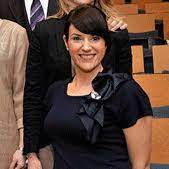 Associate professor of Management and Entrepreneurship at the Faculty of Economics, Business, and Tourism, Split. Her research interests lie in the area of entrepreneurship, social entrepreneurship, corporate entrepreneurship, corporate governance, and strategic management.
Associate professor of Management and Entrepreneurship at the Faculty of Economics, Business, and Tourism, Split. Her research interests lie in the area of entrepreneurship, social entrepreneurship, corporate entrepreneurship, corporate governance, and strategic management.
Marina’s research is published in relevant publications and she continuously participates in a number of research and professional projects. She is actively engaged as a mentor and lecturer in Faculty’s Student Business Incubator and Service Learning programme.
LJILJANA NAJEV ČAČIJA
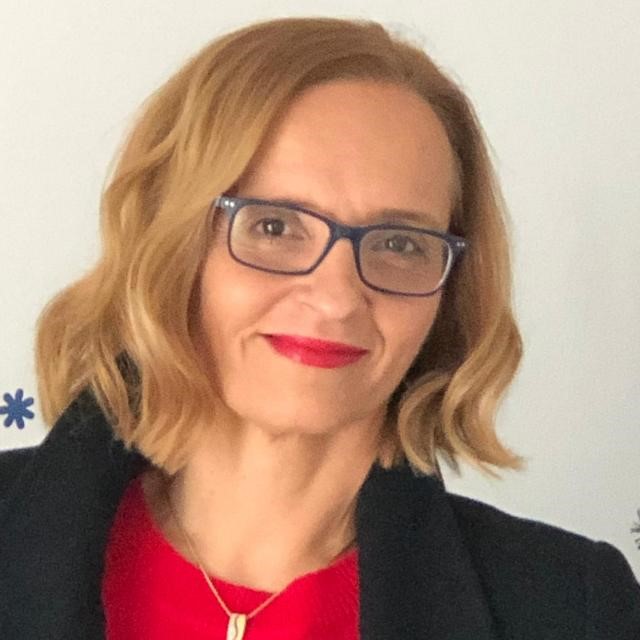 Assistant professor of Marketing and Entrepreneurship at the Faculty of Economics, Business and Tourism, Split, and an external associate at the University of Zadar in a postgraduate program for school principals. Her research interests are Entrepreneurship and Social entrepreneurship, Non-profit management and marketing, Educational management and Leadership. She actively publishes research in relevant international journals and books. Ljiljana is a member of the Croatian Scientific Centre of excellence for school effectiveness and management and Social entrepreneurship consultant for many non-profit organizations in the region. Ljiljana is very passionate about teaching students and improving their entrepreneurial skills. She has been a mentor and lecturer at Student Business Incubator programs for Entrepreneurship and Service learning for many years now. Besides scientific and teaching experience, she has significant working experience in several companies where she held marketing manager position with a particular focus on innovation, new products and market development.
Assistant professor of Marketing and Entrepreneurship at the Faculty of Economics, Business and Tourism, Split, and an external associate at the University of Zadar in a postgraduate program for school principals. Her research interests are Entrepreneurship and Social entrepreneurship, Non-profit management and marketing, Educational management and Leadership. She actively publishes research in relevant international journals and books. Ljiljana is a member of the Croatian Scientific Centre of excellence for school effectiveness and management and Social entrepreneurship consultant for many non-profit organizations in the region. Ljiljana is very passionate about teaching students and improving their entrepreneurial skills. She has been a mentor and lecturer at Student Business Incubator programs for Entrepreneurship and Service learning for many years now. Besides scientific and teaching experience, she has significant working experience in several companies where she held marketing manager position with a particular focus on innovation, new products and market development.